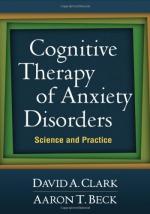|
This section contains 1,234 words (approx. 5 pages at 300 words per page) |

|
Cognitive-behavioral treatments represent a group of approaches, grounded in social learning theories of substance abuse, that hold that lack of effective coping skills may be one factor underlying the development or perpetuation of substance use disorders. Cognitive behavioral treatments have been among the most well defined and rigorously studied of the psychosocial treatments for substance abuse and dependence, and have a comparatively high level of empirical support across the addictions. For example, in their review of cost and effectiveness data for treatments for alcohol use disorders, Holder and colleagues (1991) included social skills training, self-control training, stress management training, and the Community Reinforcement Approach (Azrin et al., 1976), all broad-spectrum CBT approaches, as having good empirical evidence of effectiveness. Recent meta-analyses (Irvin et al., 1999) and reviews of the effectiveness of treatments for substance abuse (APA Workgroup on Substance Use Disorders, 1996; DeRubeis & Crits-Christoph 1998) have identified this group of approaches...
|
This section contains 1,234 words (approx. 5 pages at 300 words per page) |

|


